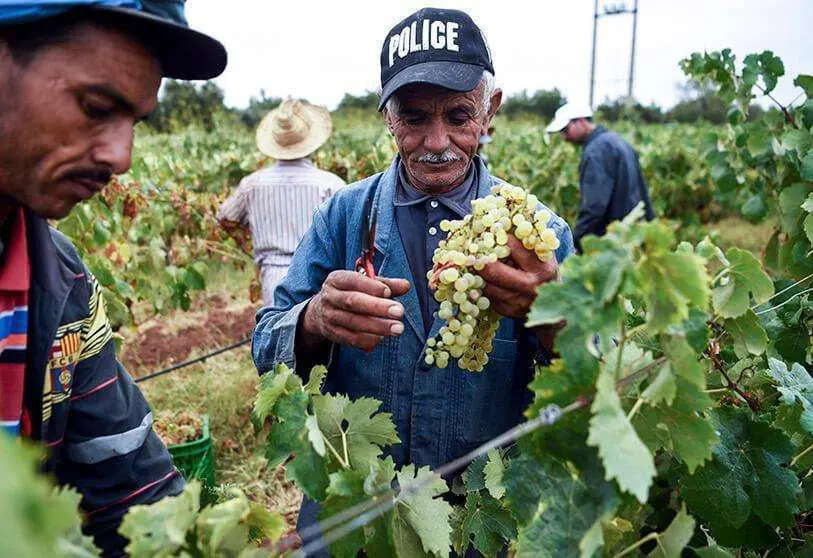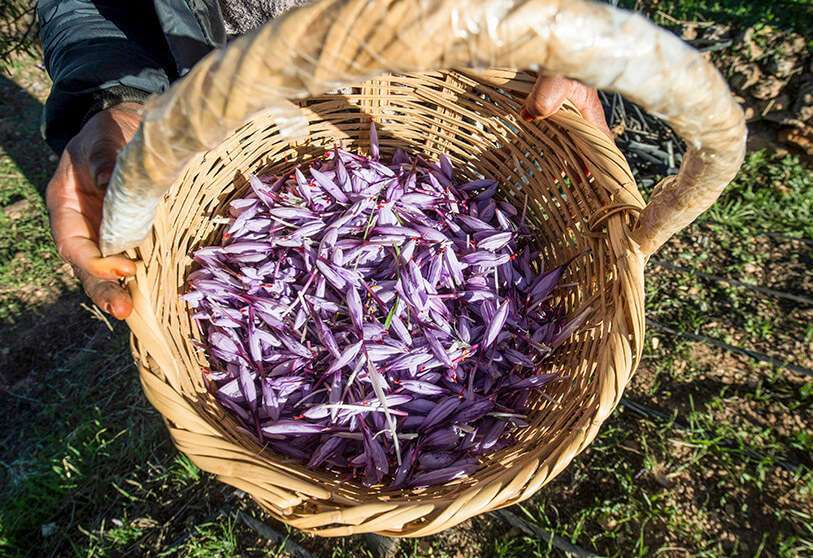Marruecos e Israel reciben a jóvenes nigerianos para enseñarles los oficios de la agricultura

Nigeria's National Agricultural Land Development Authority (NALDA) has announced that it is sending 200 young farmers to Morocco and Israel to learn the farming skills of these countries. The announcement coincides with a ceremony at which the young people were presented with their travel documents in the city of Abuja. It is a new campaign that is based on the National Youth Farmers Scheme (NYFS), developed by Nigerian President Muhammadu Buhari and Prince Paul Ikonne. The latter was present at the ceremony to hand over the documents for travel to these regions.
The objective of this campaign is clear. The 200 young farmers will learn the trade of agriculture and will be able to learn about the methods that both Morocco and Israel have in this field.
The 200 young people from the 36 regions of the Nigerian country will be divided into two groups. One group of 100 will settle in the Alawi kingdom, while the other half will travel to the Hebrew country. The young people will spend six days living in these territories learning about the activities of this economic sector. Those travelling to Morocco will have the opportunity to learn about livestock and meat processing training, while those travelling to Israel will receive intensive training in greenhouse cultivation and animal husbandry.

Prince Paul Ikonne explained that the choice of these countries is not purely coincidental, as they have great advances and knowledge in agriculture. "We are sending them to countries that we know have a great deal of experience in what we do, namely Israel and Morocco, to improve their knowledge and expose them to modern practices in crop and livestock production," said the prince.
After the six-day stay in these countries, the young farmers will return to their home country. There, they will be tasked with passing on the knowledge acquired during this scheme to apply it to the Nigerian farming system. In doing so, they aim to strengthen this economic field thanks to innovations that allow contact with the knowledge of other peoples.
Agriculture in Morocco is one of the fundamental pillars of the economy. This activity accounts for a large percentage of the national GDP and is one of the sectors that provides the most jobs in the country. For this reason, the country is increasingly interested in incorporating technological advances and methods to improve agricultural activity. In recent years, the North African country has immersed itself in various agricultural advances to improve the quality of its agricultural products and exports. These include the creation of greenhouses in the territories closest to the Sahara desert and even the use of drones and the latest technologies that provide information on the diagnosis of crops and the care they need at any given moment.

In the case of Israel, this country is also one of the main exporters of agricultural products to the world. What is most characteristic of this sector is that the nation is a leader in the creation of agricultural technologies for the correct development of crops. This is due to the fact that the country's geography is not very favourable for agricultural activity, which is why experts in the field have had to find ways to develop this economic field. These include highly sophisticated irrigation methods that are implemented even in the most desert regions of the territory and methods of cultivation in these areas.
Moreover, it is not the first time that Nigeria is interested in what these two countries have to offer in this industry. One example is that already in 2013, the African nation and Israel signed an agreement in which they involved 400 young people to receive training on Israeli irrigated agriculture. "The idea is to use the Israeli experience while the young people stay in agricultural settlements that have worked well for them," Sarah Ochekpe, Nigeria's former Minister of Water Resources during 2011 and 2015, told the African Press Agency








